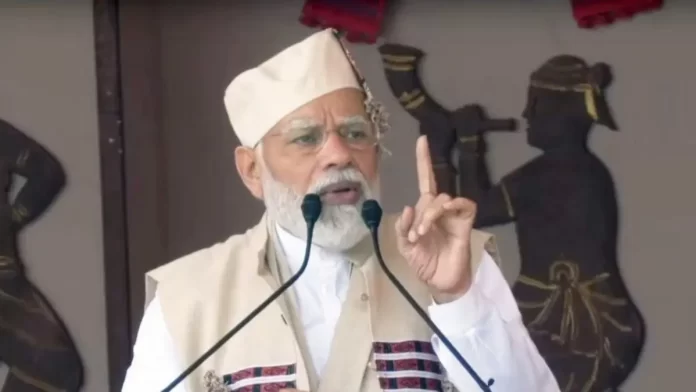Prime Minister Narendra Modi on Tuesday addressed a program marking the silver jubilee celebrations of the Telecom Regulatory Authority of India (TRAI) via video conferencing. He also released a postal stamp to commemorate the occasion.
TRAI was established in 1997 through the Telecom Regulatory Authority of India Act, 1997.
What is Telecom Regulatory Authority of India?
Telecom Regulatory Authority of India (TRAI) is a regulatory body set up by the Indian Government on 20 February 1997 by an Act of Parliament to regulate telecom services and tariffs in India.
TRAI’s mission is to create and nurture conditions for the growth of telecommunications in India to enable the country to have a leading role in the emerging global information society.
One of its main objectives is to provide a fair and transparent environment that promotes a level playing field and facilitates fair competition in the market.
TRAI regularly issues orders and directions on various subjects such as tariffs, interconnections, quality of service, Direct To Home (DTH) services, and mobile number portability.
5G Test Bed launch
During the program, Prime Minister launched a 5G Test Bed, developed as a multi-institute collaborative project by a total of eight institutes led by IIT Madras.
The other institutes that participated in the project include IIT Delhi, IIT Hyderabad, IIT Bombay, IIT Kanpur, IISc Bangalore, Society for Applied Microwave Electronics Engineering & Research (SAMEER), and Centre of Excellence in Wireless Technology (CEWiT).
The project has been developed at a cost of more than Rs. 220 crore. The Test Bed will enable a supportive ecosystem for Indian industry and startups which will help them validate their products, prototypes, solutions, and algorithms in 5G and next-generation technologies.
Addressing the gathering, the Prime Minister said the self-made 5G Test Bed that he dedicated to the nation today, is an important step toward self-reliance in critical and modern technology in the telecom sector.
He congratulated all those associated with this project including the IITs. “The country’s own 5G standard has been made in the form of 5Gi, it is a matter of great pride for the country. It will play a big role in bringing 5G technology to the villages of the country”, he said.
The importance of Connectivity in Progress
The Prime Minister said that connectivity will determine the pace of progress in 21st century India. Therefore connectivity has to be modernized at every level. 5G technology, he continued, is also going to bring positive changes in the governance of the country, ease of living, and ease of doing business.
This will boost growth in every sector like agriculture, health, education, infrastructure, and logistics. This will also increase convenience and create many employment opportunities. For rapid roll-out of 5G, efforts of both the government and industry are needed, he added.
The Prime Minister cited the telecom sector as a great example of how self-reliance and healthy competition create a multiplier effect on society and the economy.
Coming out of the despair, frustration, corruption, and policy paralysis of the 2G era, the country has moved rapidly from 3G to 4G and now 5G and 6G.
Panchamrita in Telecom Sector
The Prime Minister noted that in the last 8 years, new energy was infused into the telecom sector with the ‘Panchamrita’ of Reach, Reform, Regulate, Respond and Revolutionise. He credited TRAI for playing a very important role in this.
The Prime Minister said now the country is going beyond thinking in silos and moving ahead with the ‘whole of the government approach.
Today we are expanding the fastest in the world in terms of teledensity and internet users in the country, many sectors including telecom have played a role in it, he said.
The Prime Minister said to make mobile access to the poorest of the poor families, emphasis was placed on the manufacturing of mobile phones in the country itself. The result was that the mobile manufacturing units increased from 2 to more than 200.
Optical Fibre Connectivity
The Prime Minister noted that today India is connecting every village in the country with optical fiber. He added that before 2014, not even 100 village panchayats in India were provided with optical fiber connectivity.
Today we have made broadband connectivity reach about 1.75 lakh gram panchayats. Hundreds of government services are reaching the villages because of this.
The Prime Minister said that the ‘whole of government approach is important for the regulators like TRAI and also for meeting the present and future challenges. “Today regulation is not limited to the boundaries of just one sector.
Technology is interconnecting different sectors. That’s why today everyone is experiencing the need for collaborative regulation.
For this it is necessary that all the regulators come together, develop common platforms and find solutions for better coordination”, the Prime Minister said.
